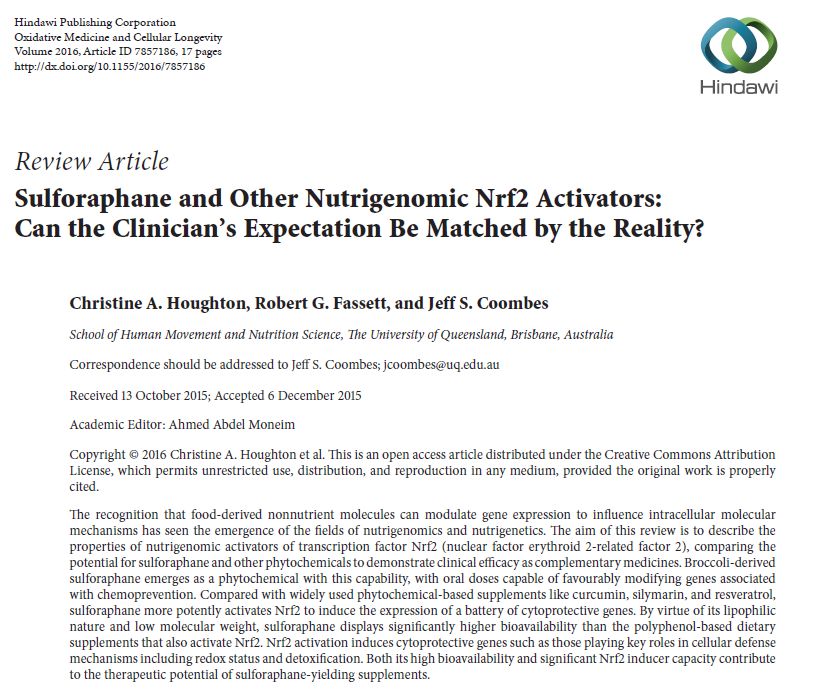Christine A. Houghton, Robert G. Fassett, and Jeff S. Coombes

2016– ABSTRACT: The recognition that food-derived non-nutrient molecules can modulate gene expression to influence intracellular molecular mechanisms has seen the emergence of the fields of nutrigenomics and nutrigenetics. The aim of this review is to describe the properties of nutrigenomic activators of transcription factor Nrf2 (nuclear factor erythroid 2-related factor 2), comparing the potential for sulforaphane and other phytochemicals to demonstrate clinical efficacy as complementary medicines. Broccoli-derived sulforaphane emerges as a phytochemical with this capability, with oral doses capable of favourably modifying genes associated with chemoprevention. Compared with widely used phytochemical-based supplements like curcumin, silymarin, and resveratrol, sulforaphane more potently activates Nrf2 to induce the expression of a battery of cytoprotective genes. By virtue of its lipophilic nature and low molecular weight, sulforaphane displays significantly higher bioavailability than the polyphenol-based dietary supplements that also activate Nrf2. Nrf2 activation induces cytoprotective genes such as those playing key roles in cellular defense mechanisms including redox status and detoxification. Both its high bioavailability and significant Nrf2 inducer capacity contribute to the therapeutic potential of sulforaphane-yielding supplements.